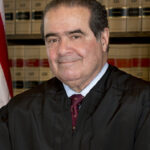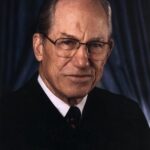JUSTICE O'CONNOR delivered the opinion of the Court.
We have held that the Fourth Amendment permits police officers to approach individuals at random in airport lobbies and other public places to ask them questions and to request consent to search their luggage, so long as a reasonable person would understand that he or she could refuse to cooperate. This case requires us to determine whether the same rule applies to police encounters that take place on a bus.
I
Drug interdiction efforts have led to the use of police surveillance at airports, train stations, and bus depots. Law enforcement officers stationed at such locations routinely approach individuals, either randomly or because they suspect in some vague way that the individuals may be engaged in criminal activity, and ask them potentially incriminating questions. Broward County has adopted such a program. County Sheriff's Department officers routinely board buses at scheduled stops and ask passengers for permission to search their luggage.
In this case, two officers discovered cocaine when they searched a suitcase belonging to Terrance Bostick. The underlying facts of the search are in dispute, but the Florida Supreme Court, whose decision we review here, stated explicitly the factual premise for its decision:
'Two officers, complete with badges, insignia and one of them holding a recognizable zipper pouch, containing a pistol, boarded a bus bound from Miami to Atlanta during a stopover in Fort Lauderdale. Eyeing the passengers, the officers admittedly without articulable suspicion, picked out the defendant passenger and asked to inspect his ticket and identification. The ticket, from Miami to Atlanta, matched the defendant's identification and both were immediately returned to him as unremarkable. However, the two police officers persisted, and explained their presence as narcotics agents on the lookout for illegal drugs. In pursuit of that aim, they then requested the defendant's consent to search his luggage. Needless to say, there is a conflict in the evidence about whether the defendant consented to the search of the second bag in which the contraband was found and as to whether he was informed of his right to refuse consent. However, any conflict must be resolved in favor of the state, it being a question of fact decided by the trial judge.'
554 So.2d 1153, 1154-1155 (1989), quoting 510 So.2d 321, 322 (Fla. App.1987) (Letts, J., dissenting in part).
Two facts are particularly worth noting. First, the police specifically advised Bostick that he had the right to refuse consent. Bostick appears to have disputed the point, but, as the Florida Supreme Court noted explicitly, the trial court resolved this evidentiary conflict in the State's favor. Second, at no time did the officers threaten Bostick with a gun. The Florida Supreme Court indicated that one officer carried a zipper pouch containing a pistol -the equivalent of carrying a gun in a holster -but the court did not suggest that the gun was ever removed from its pouch, pointed at Bostick, or otherwise used in a threatening manner. The dissent's characterization of the officers as "gun-wielding inquisitor[s]," post at 501 U. S. 448, is colorful, but lacks any basis in fact.
Bostick was arrested and charged with trafficking in cocaine. He moved to suppress the cocaine on the grounds that it had been seized in violation of his Fourth Amendment rights. The trial court denied the motion, but made no factual findings. Bostick subsequently entered a plea of guilty, but reserved the right to appeal the denial of the motion to suppress.
The Florida District Court of Appeal affirmed, but considered the issue sufficiently important that it certified a question to the Florida Supreme Court. 510 So.2d at 322. The Supreme Court reasoned that Bostick had been seized because a reasonable passenger in his situation would not have felt free to leave the bus to avoid questioning by the police. 554 So.2d at 1154. It rephrased and answered the certified question so as to make the bus setting dispositive in every case. It ruled categorically that
''an impermissible seizure result[s] when police mount a drug search on buses during scheduled stops and question boarded passengers without articulable reasons for doing so, thereby obtaining consent to search the passengers' luggage.'
Ibid. The Florida Supreme Court thus adopted a per se rule that the Broward County Sheriff's practice of "working the buses" is unconstitutional. * The result of this decision is that police in Florida, as elsewhere, may approach persons at random in most public places, ask them questions and seek consent to a search, see id. at 1156; but they may not engage in the same behavior on a bus. Id. at 1157. We granted certiorari, 498 U.S. 894 (1990), to determine whether the Florida Supreme Court's per se rule is consistent with our Fourth Amendment jurisprudence.
II
The sole issue presented for our review is whether a police encounter on a bus of the type described above necessarily constitutes a "seizure" within the meaning of the Fourth Amendment. The State concedes, and we accept for purposes of this decision, that the officers lacked the reasonable suspicion required to justify a seizure and that, if a seizure took place, the drugs found in Bostick's suitcase must be suppressed as tainted fruit.
Our cases make it clear that a seizure does not occur simply because a police officer approaches an individual and asks a few questions. So long as a reasonable person would feel free "to disregard the police and go about his business," California v. Hodari D., 499 U. S. 621, 501 U. S. 628 (1991), the encounter is consensual, and no reasonable suspicion is required. The encounter will not trigger Fourth Amendment scrutiny unless it loses its consensual nature. The Court made precisely this point in Terry v. Ohio, 392 U. S. 1, 392 U. S. 19, n. 16 (1968):
Obviously, not all personal intercourse between policemen and citizens involves 'seizures' of persons. Only when the officer, by means of physical force or show of authority, has in some way restrained the liberty of a citizen may we conclude that a 'seizure' has occurred.
Since Terry, we have held repeatedly that mere police questioning does not constitute a seizure. In Florida v. Royer, 460 U. S. 491 (1983) (plurality opinion), for example, we explained that
law enforcement officers do not violate the Fourth Amendment by merely approaching an individual on the street or in another public place, by asking him if he is willing to answer some questions, by putting questions to him if the person is willing to listen, or by offering in evidence in a criminal prosecution his voluntary answers to such questions.
Id. at 460 U. S. 497 ; see id. at 460 U. S. 523, n. 3 (REHNQUIST, J., dissenting).
There is no doubt that, if this same encounter had taken place before Bostick boarded the bus or in the lobby of the bus terminal, it would not rise to the level of a seizure. The Court has dealt with similar encounters in airports, and has found them to be "the sort of consensual encounter[s] that implicat[e] no Fourth Amendment interest." Florida v. Rodriguez, 469 U. S. 1, 469 U. S. 5 -6 (1984). We have stated that even when officers have no basis for suspecting a particular individual, they may generally ask questions of that individual, see INS v. Delgado, 466 U. S. 210, 466 U. S. 216 (1984); Rodriguez, supra, 469 U.S. at 469 U. S. 5 -6; ask to examine the individual's identification, see Delgado, supra, 466 U.S. at 466 U. S. 216 ; Royer, supra, 460 U.S. at 460 U. S. 501 (plurality opinion); United States v. Mendenhall, 446 U. S. 544, 446 U. S. 557 -558 (1980); and request consent to search his or her luggage, see Royer, supra, 460 U.S. at 460 U. S. 501 (plurality opinion) -as long as the police do not convey a message that compliance with their requests is required.
Bostick insists that this case is different because it took place in the cramped confines of a bus. A police encounter is much more intimidating in this setting, he argues, because police tower over a seated passenger and there is little room to move around. Bostick claims to find support in language from Michigan v. Chesternut, 486 U. S. 567, 486 U. S. 573 (1988), and other cases, indicating that a seizure occurs when a reasonable person would believe that he or she is not "free to leave." Bostick maintains that a reasonable bus passenger would not have felt free to leave under the circumstances of this case because there is nowhere to go on a bus. Also, the bus was about to depart. Had Bostick disembarked, he would have risked being stranded and losing whatever baggage he had locked away in the luggage compartment.
The Florida Supreme Court found this argument persuasive, so much so that it adopted a per se rule prohibiting the police from randomly boarding buses as a means of drug interdiction. The state court erred, however, in focusing on whether Bostick was "free to leave," rather than on the principle that those words were intended to capture. When police attempt to question a person who is walking down the street or through an airport lobby, it makes sense to inquire whether a reasonable person would feel free to continue walking. But when the person is seated on a bus and has no desire to leave, the degree to which a reasonable person would feel that he or she could leave is not an accurate measure of the coercive effect of the encounter.
Here, for example, the mere fact that Bostick did not feel free to leave the bus does not mean that the police seized him. Bostick was a passenger on a bus that was scheduled to depart. He would not have felt free to leave the bus even if the police had not been present. Bostick's movements were "confined" in a sense, but this was the natural result of his decision to take the bus; it says nothing about whether or not the police conduct at issue was coercive.
In this respect, the Court's decision in INS v. Delgado, supra, is dispositive. At issue there was the INS' practice of visiting factories at random and questioning employees to determine whether any were illegal aliens. Several INS agents would stand near the building's exits, while other agents walked through the factory questioning workers. The Court acknowledged that the workers may not have been free to leave their worksite, but explained that this was not the result of police activity:
Ordinarily, when people are at work, their freedom to move about has been meaningfully restricted, not by the actions of law enforcement officials, but by the workers' voluntary obligations to their employers.
Id. 466 U.S. at 466 U. S. 218. We concluded that there was no seizure because, even though the workers were not free to leave the building without being questioned, the agents' conduct should have given employees
no reason to believe that they would be detained if they gave truthful answers to the questions put to them or if they simply refused to answer.
Ibid.
The present case is analytically indistinguishable from Delgado. Like the workers in that case, Bostick's freedom of movement was restricted by a factor independent of police conduct – i.e., by his being a passenger on a bus. Accordingly, the "free to leave" analysis on which Bostick relies is inapplicable. In such a situation, the appropriate inquiry is whether a reasonable person would feel free to decline the officers' requests or otherwise terminate the encounter. This formulation follows logically from prior cases and breaks no new ground. We have said before that the crucial test is whether, taking into account all of the circumstances surrounding the encounter, the police conduct would "have communicated to a reasonable person that he was not at liberty to ignore the police presence and go about his business." Chesternut, supra, 486 U.S. at 486 U. S. 569. See also Hodari D., supra, 499 U.S. at 499 U. S. 628. Where the encounter takes place is one factor, but it is not the only one. And, as the Solicitor General correctly observes, an individual may decline an officer's request without fearing prosecution. See Brief for the United States as Amicus Curiae 25. We have consistently held that a refusal to cooperate, without more, does not furnish the minimal level of objective justification needed for a detention or seizure. See Delgado, 466 U.S. at 466 U. S. 216 -217; Royer, 460 U.S. at 460 U. S. 498 (plurality opinion); Brown v. Texas, 443 U. S. 47, 443 U. S. 52 -53 (1979).
The facts of this case, as described by the Florida Supreme Court, leave some doubt whether a seizure occurred. Two officers walked up to Bostick on the bus, asked him a few questions, and asked if they could search his bags. As we have explained, no seizure occurs when police ask questions of an individual, ask to examine the individual's identification, and request consent to search his or her luggage -so long as the officers do not convey a message that compliance with their requests is required. Here, the facts recited by the Florida Supreme Court indicate that the officers did not point guns at Bostick or otherwise threaten him, and that they specifically advised Bostick that he could refuse consent.
Nevertheless, we refrain from deciding whether or not a seizure occurred in this case. The trial court made no express findings of fact, and the Florida Supreme Court rested its decision on a single fact -that the encounter took place on a bus -rather than on the totality of the circumstances. We remand so that the Florida courts may evaluate the seizure question under the correct legal standard. We do reject, however, Bostick's argument that he must have been seized because no reasonable person would freely consent to a search of luggage that he or she knows contains drugs. This argument cannot prevail because the "reasonable person" test presupposes an innocent person. See Royer, supra, 460 U.S. at 460 U. S. 519, n. 4 (BLACKMUN, J., dissenting) ("The fact that [respondent] knew the search was likely to turn up contraband is, of course, irrelevant; the potential intrusiveness of the officers' conduct must be judged from the viewpoint of an innocent person in [his] position"). Accord, Chesternut, 486 U.S. at 486 U. S. 574 ("This reasonable person' standard… ensures that the scope of Fourth Amendment protection does not vary with the state of mind of the particular individual being approached").
The dissent characterizes our decision as holding that police may board buses and, by an " intimidating show of authority," post at 501 U. S. 447 (emphasis added), demand of passengers their "voluntary" cooperation. That characterization is incorrect. Clearly, a bus passenger's decision to cooperate with law enforcement officers authorizes the police to conduct a search without first obtaining a warrant only if the cooperation is voluntary. "Consent" that is the product of official intimidation or harassment is not consent at all. Citizens do not forfeit their constitutional rights when they are coerced to comply with a request that they would prefer to refuse. The question to be decided by the Florida courts on remand is whether Bostick chose to permit the search of his luggage.
The dissent also attempts to characterize our decision as applying a lesser degree of constitutional protection to those individuals who travel by bus, rather than by other forms of transportation. This, too, is an erroneous characterization. Our Fourth Amendment inquiry in this ease -whether a reasonable person would have felt free to decline the officers' requests or otherwise terminate the encounter -applies equally to police encounters that take place on trains, planes, and city streets. It is the dissent that would single out this particular mode of travel for differential treatment by adopting a per se rule that random bus searches are unconstitutional.
The dissent reserves its strongest criticism for the proposition that police officers can approach individuals as to whom they have no reasonable suspicion and ask them potentially incriminating questions. But this proposition is by no means novel; it has been endorsed by the Court any number of times. Terry, Royer, Rodriguez, and Delgado are just a few examples. As we have explained, today's decision follows logically from those decisions, and breaks no new ground. Unless the dissent advocates overruling a long, unbroken line of decisions dating back more than 20 years, its criticism is not well taken.
This Court, as the dissent correctly observes, is not empowered to suspend constitutional guarantees so that the Government may more effectively wage a "war on drugs." See post at 501 U. S. 440, 501 U. S. 450 -451. If that war is to be fought, those who fight it must respect the rights of individuals, whether or not those individuals are suspected of having committed a crime. By the same token, this Court is not empowered to forbid law enforcement practices simply because it considers them distasteful. The Fourth Amendment proscribes unreasonable searches and seizures; it does not proscribe voluntary cooperation. The cramped confines of a bus are one relevant factor that should be considered in evaluating whether a passenger's consent is voluntary. We cannot agree, however, with the Florida Supreme Court that this single factor will be dispositive in every case.
We adhere to the rule that, in order to determine whether a particular encounter constitutes a seizure, a court must consider all the circumstances surrounding the encounter to determine whether the police conduct would have communicated to a reasonable person that the person was not free to decline the officers' requests or otherwise terminate the encounter. That rule applies to encounters that take place on a city street or in an airport lobby, and it applies equally to encounters on a bus. The Florida Supreme Court erred in adopting a per se rule.
The judgment of the Florida Supreme Court is reversed, and the case remanded for further proceedings not inconsistent with this opinion.
It is so ordered.





